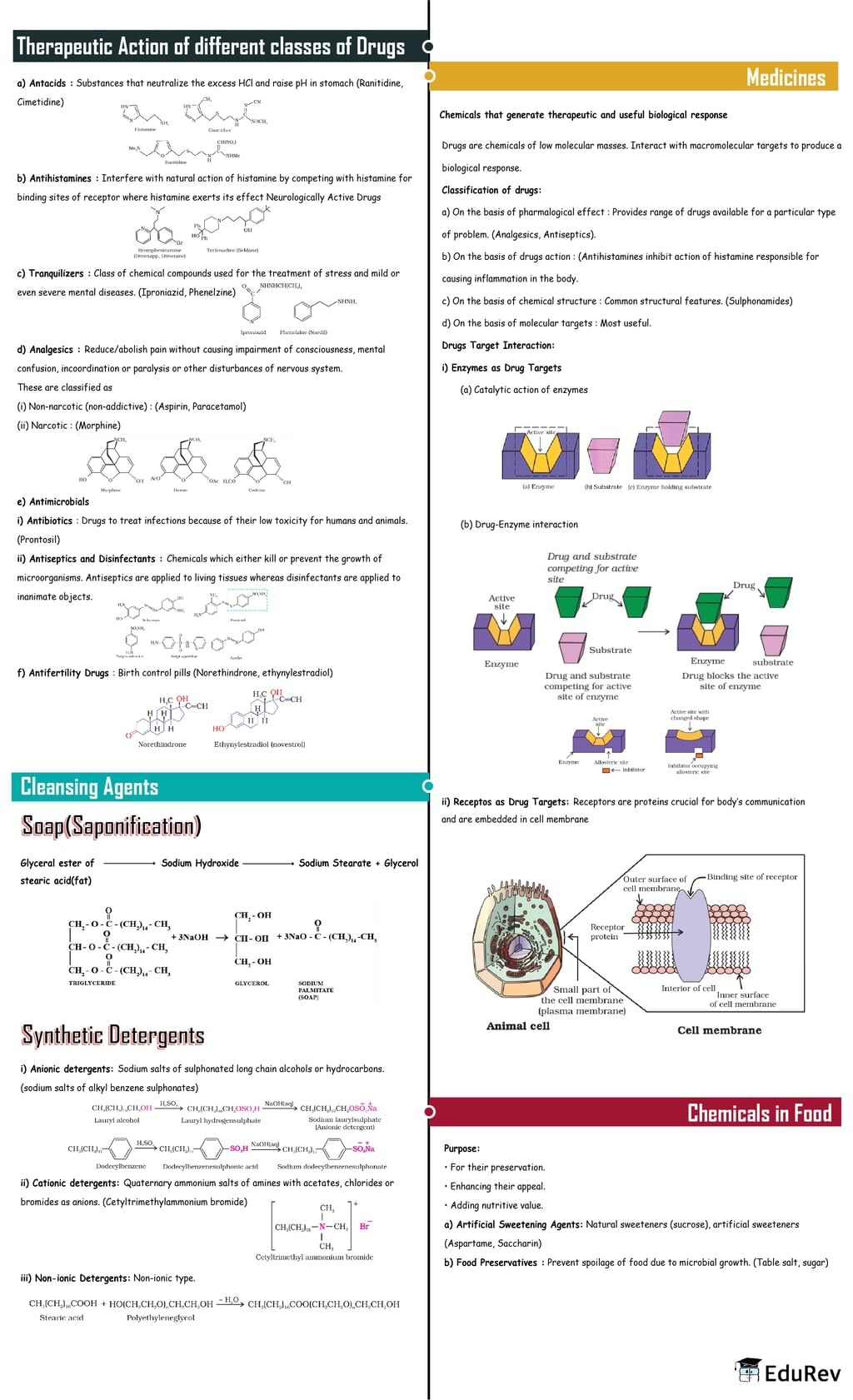NEET Exam > NEET Notes > Chemistry Class 12 > Mindmap: Chemistry in Everyday Life (Old NCERT)
Mindmap: Chemistry in Everyday Life (Old NCERT) | Chemistry Class 12 - NEET PDF Download

The document Mindmap: Chemistry in Everyday Life (Old NCERT) | Chemistry Class 12 - NEET is a part of the NEET Course Chemistry Class 12.
All you need of NEET at this link: NEET
|
108 videos|286 docs|123 tests
|
FAQs on Mindmap: Chemistry in Everyday Life (Old NCERT) - Chemistry Class 12 - NEET
| 1. What is chemistry in everyday life? |  |
Chemistry in everyday life refers to the application of chemical knowledge and principles to understand and improve various aspects of our daily lives. It involves studying the chemicals present in products we use, their interactions, and their impact on our health and environment.
| 2. How does chemistry impact our everyday life? |  |
Chemistry impacts our everyday life in numerous ways. It is involved in the production of medicines, food additives, and cosmetics that we use daily. It helps in understanding the effects of pollutants on our environment and enables the development of technologies for clean energy. Chemistry is also essential in understanding the reactions occurring in our body and developing new drugs for various diseases.
| 3. What are some examples of chemistry in everyday life? |  |
There are several examples of chemistry in everyday life. Some common examples include the use of detergent to clean clothes, the process of digestion in our body, the fermentation of bread, the production of plastic materials, the preservation of food using preservatives, and the use of batteries in electronic devices.
| 4. How does chemistry play a role in medicine? |  |
Chemistry plays a crucial role in medicine. It is involved in the development and production of pharmaceutical drugs. Chemists study the chemical structure of molecules and their interactions with biological systems to design and synthesize new drugs. They also study the metabolism and elimination of drugs from the body to ensure their safety and effectiveness.
| 5. How does chemistry contribute to environmental sustainability? |  |
Chemistry contributes to environmental sustainability by developing technologies and processes that reduce pollution and promote clean energy sources. Chemists work on developing catalysts for more efficient and environmentally friendly industrial processes. They also study the behavior of pollutants in the environment and work towards finding solutions to mitigate their harmful effects. Additionally, chemistry plays a role in developing renewable energy sources such as solar cells and fuel cells.

|
Explore Courses for NEET exam
|

|
Signup for Free!
Signup to see your scores go up within 7 days! Learn & Practice with 1000+ FREE Notes, Videos & Tests.
Related Searches

















